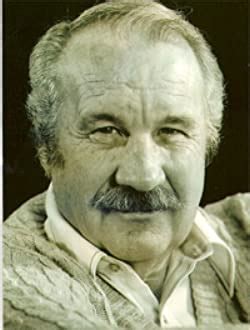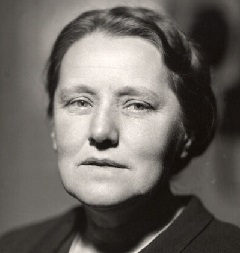A Quote by Karen Armstrong
Yet a personal God can become a grave liability. He can be a mere idol carved in our own image, a projection of our limited needs, fears and desires. We can assume that he loves what we love and hates what we hate, endorsing our prejudices instead of compelling us to transcend them.
Related Quotes
There is no hate without fear. Hate is crystallized fear, fear's dividend, fear objectivized. We hate what we fear and so where hate is, fear is lurking. Thus we hate what threatens our person, our liberty, our privacy, our income, our popularity, our vanity and our dreams and plans for ourselves. If we can isolate this element in what we hate we may be able to cease from hating... Hate is the consequence of fear; we fear something before we hate; a child who fears noises becomes the man who hates them.
The mystery of the spiritual life is that Jesus desires to meet us in the seclusion of our own heart, to make his love known to us there, to free us from our fears, and to make our own deepest self known to us Each time you let the love of God penetrate deeper into your heart it leads to a love of ourselves that enables us to give whole-hearted love to our fellow human beings. In the seclusion of our hearts we learn to know the hidden presence of God; and with that spiritual knowledge we can lead a loving life.
Religion and anger has gone together a lot, historically. My father, being very religious and angry, was trying to reconcile the ideas of love and forgiveness with damage in his own heart. We historically create God in the image of someone who will redeem us, or someone who has damaged us. A lot of my imaginations of God was a projection of my own damage because of my father. God is good but he has a lot of expectations, of which I have failed -- just like my dad. But I don't think it's truthful to create God as a projection of either our damage or our altruism.
We need to repent of the haughty way in which we sometimes stand in judgment upon Scripture and must learn to sit humbly under its judgments instead. If we come to Scripture with our minds made up, expecting to hear from it only an echo of our own thoughts and never the thunderclap of God's, then indeed he will not speak to us and we shall only be confirmed in our own prejudices. We must allow the Word of God to confront us, to disturb our security, to undermine our complacency and to overthrow our patterns of thought and behavior.
He didn't know whether we created God in our own image or whether God created us without quite knowing what he was doing. He believed that God, or whatever brought us here, lives in each of our deeds, in each of our words, and manifests himself in all those things that show us to be more than mere figures of clay.
When we hate our enemies, we are giving them power over us: power over our sleep, our appetites, our blood pressure, our health and our happiness. Our enemies would dance with joy if only they knew how they were worrying us, lacerating us, and getting even with us! Our hate is not hurting them at al, but our hate is turning our days and nights into a hellish turmoil.
Notice carefully every word here. It is not our prayer which draws Jesus into our hearts. Nor is it our prayer which moves Jesus to come in to us. All He needs is access. He enters in of His own accord, because He desires to come in. To pray is nothing more involved than to let Jesus into our needs, and permitting Him to exercise His own power in dealing with them. And that requires no strength. It is only a question of our wills. Will we give Jesus access to our needs?.
There is an urgent need to-day for the citizens of a democracy to think well. It is not enough to have freedom of the Press and parliamentary institutions. Our difficulties are due partly to our own stupidity, partly to the exploitation of that stupidity, and partly to our own prejudices and personal desires.
At the heart of all photography is an urge to express our deepest personal feelings - to reveal our inner, hidden selves, to unlock the artist. Those of us who become photographers are never satisfied with just looking at someone else's expression of something that is dear to us. We must produce our own images, instead of buying postcards and photo books. We seek to make our own statements of individuality.
The whole story of creation, incarnation, and our incorporation into the fellowship of Christ's body tells us that God desires us, as if we were God, as if we were that unconditional response to God's giving that God's self makes in the life of the Trinity. We are created so that we may be caught up in this, so that we may grow into the wholehearted love of God by learning that God loves us as God loves God.






































